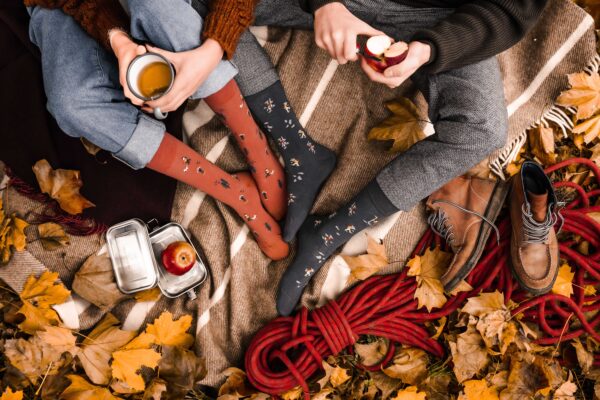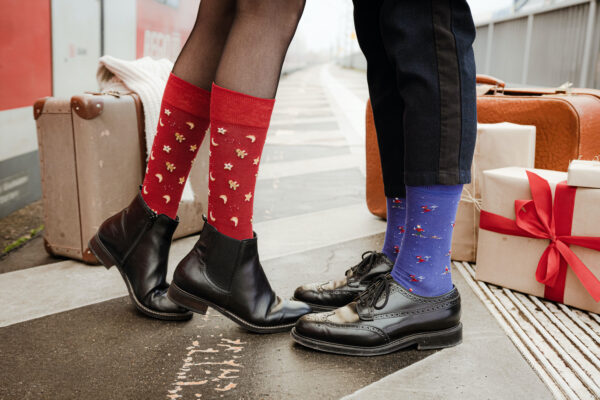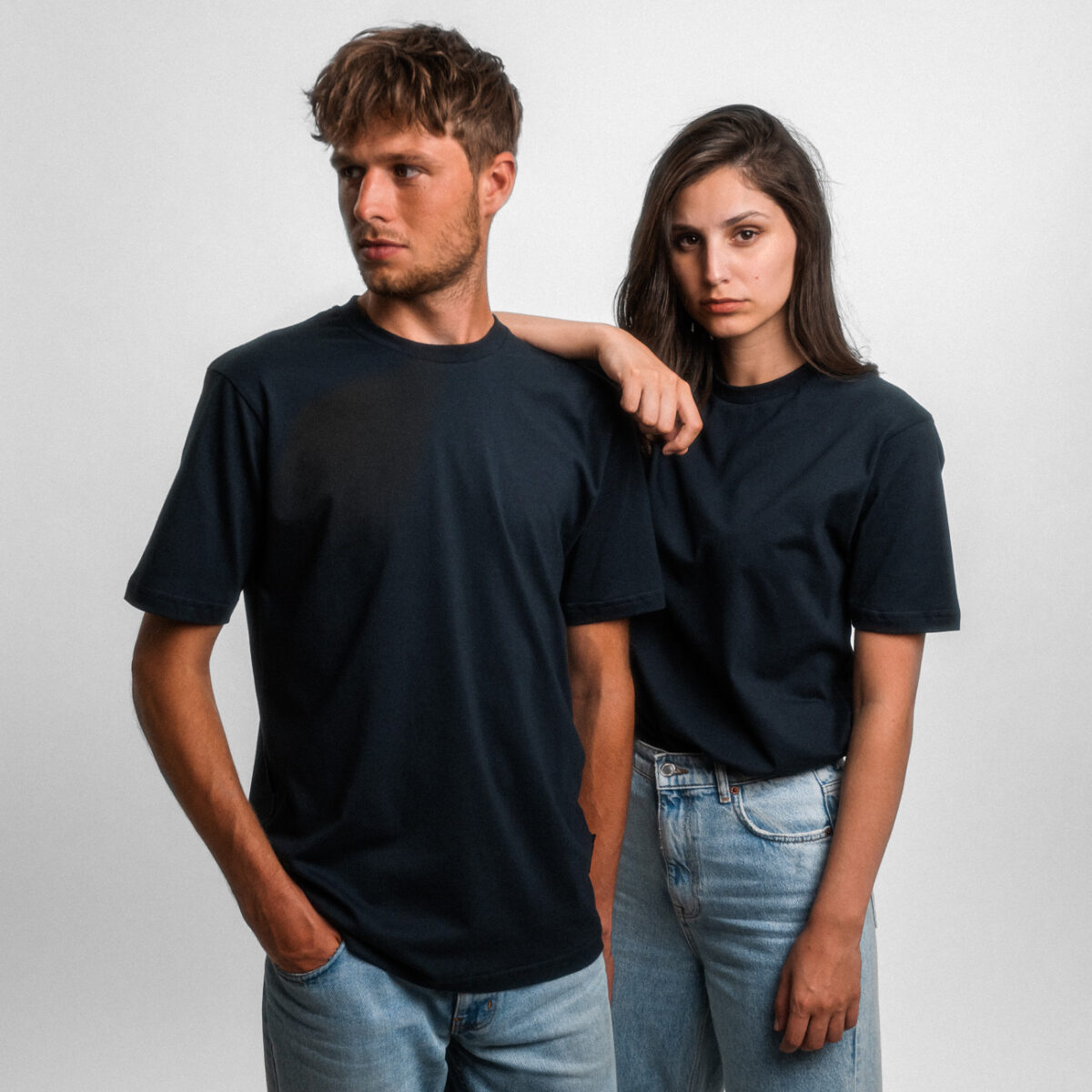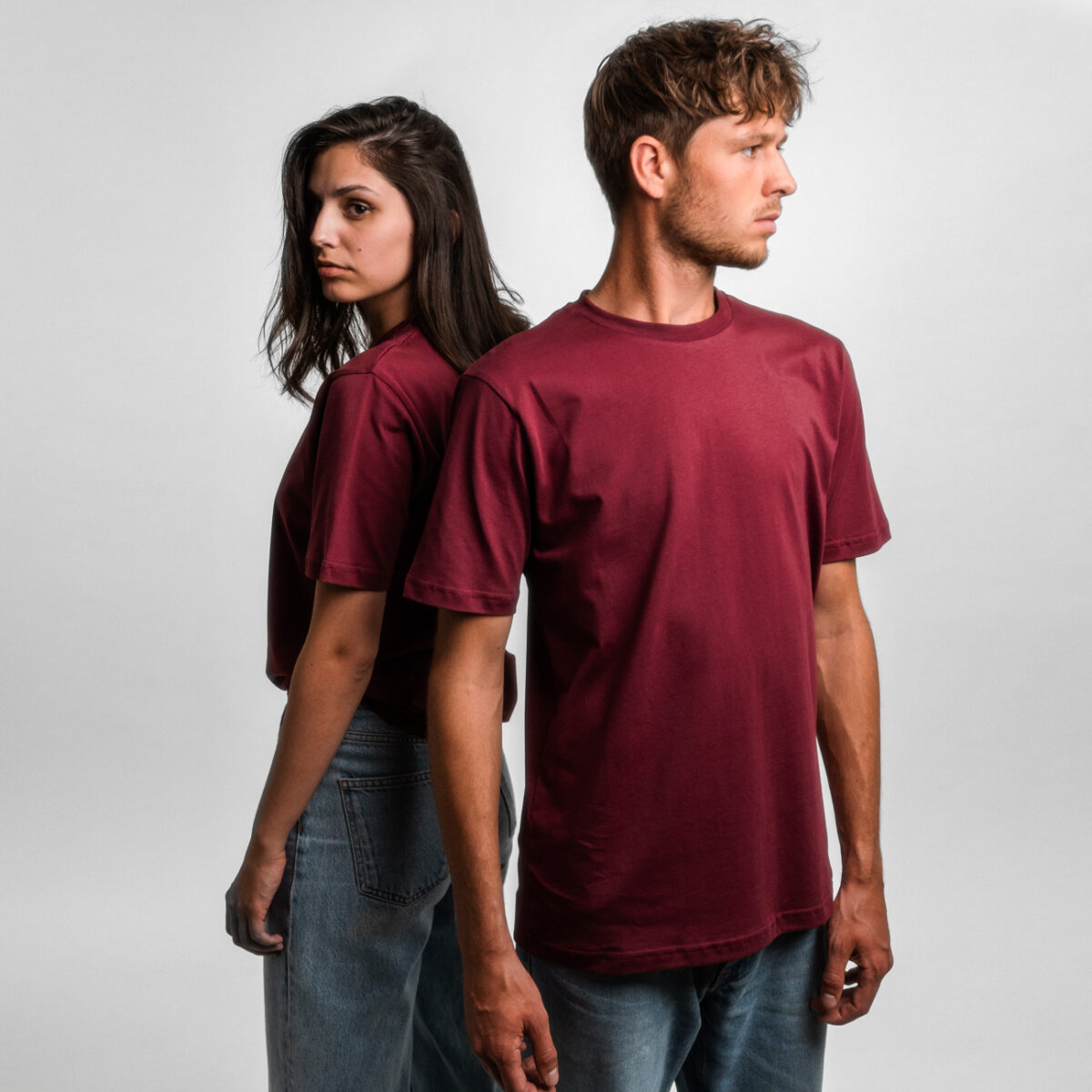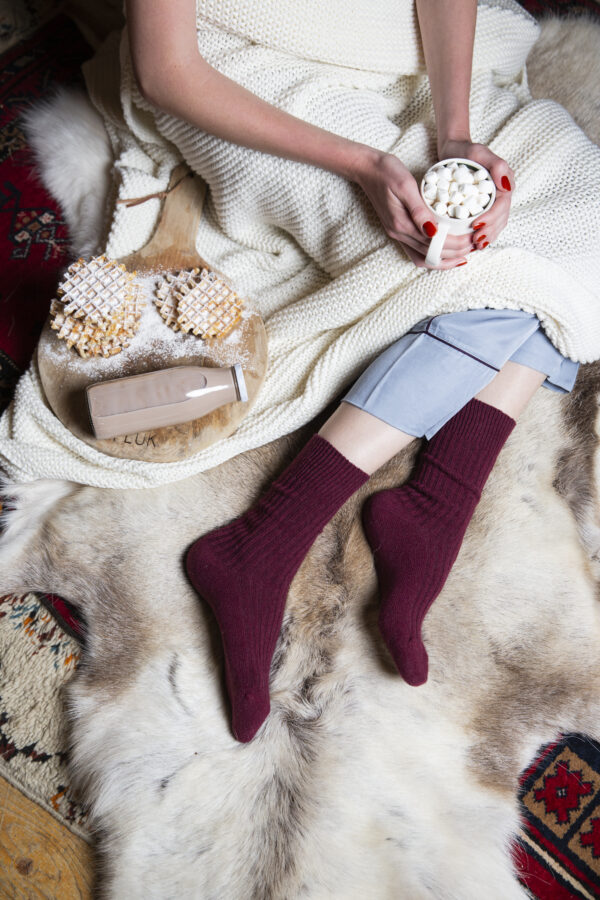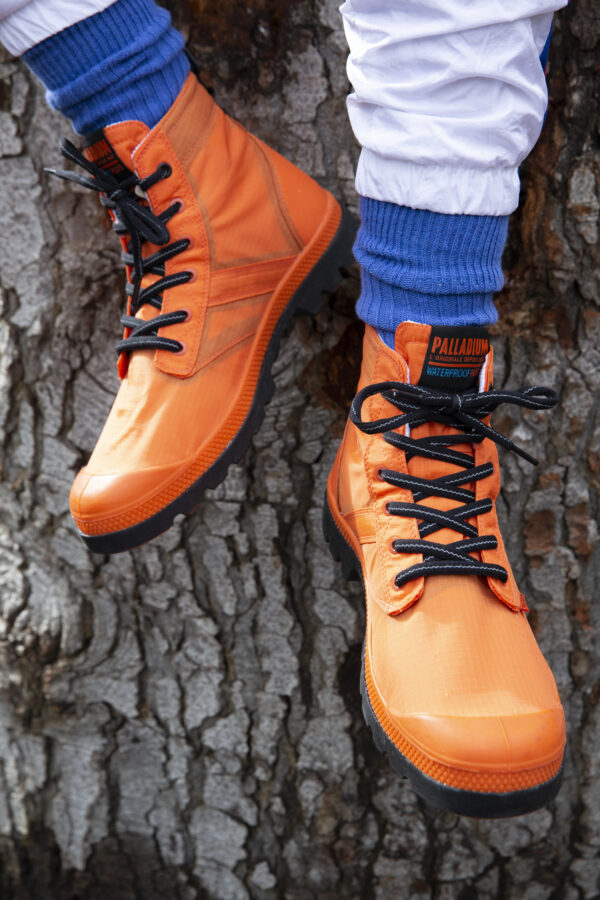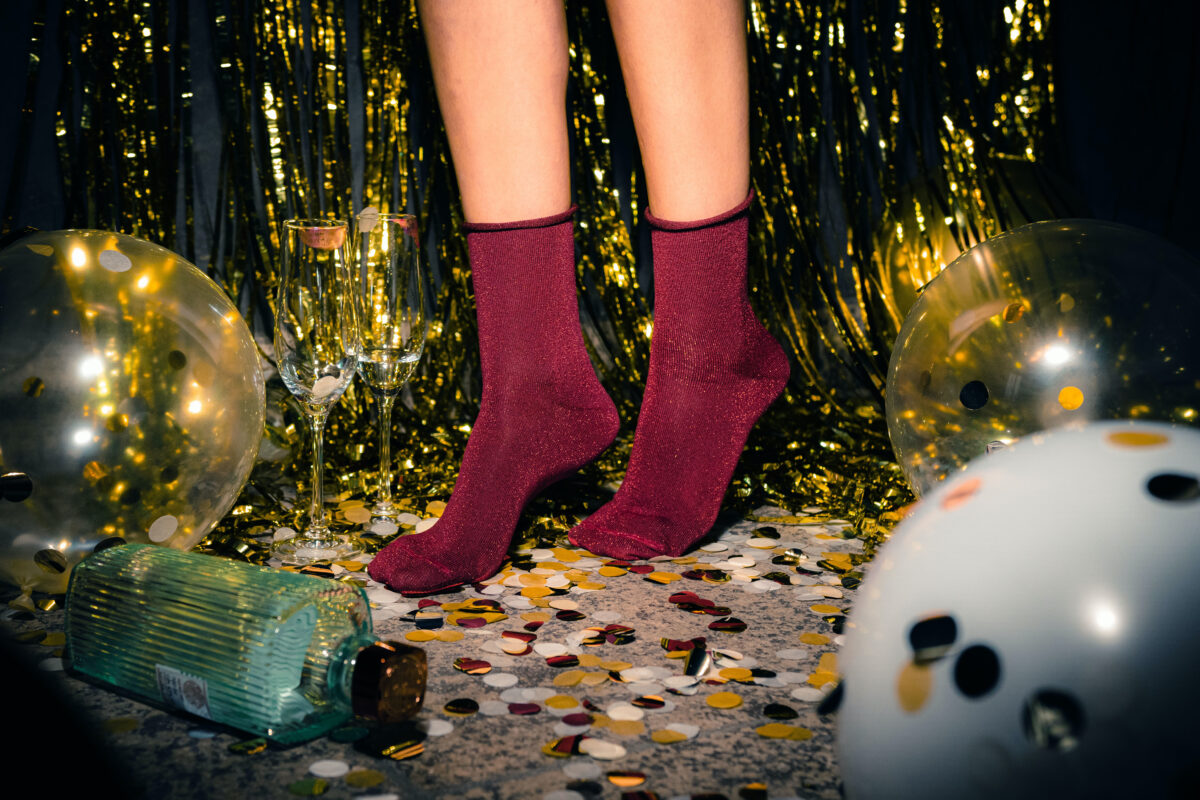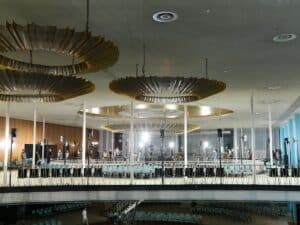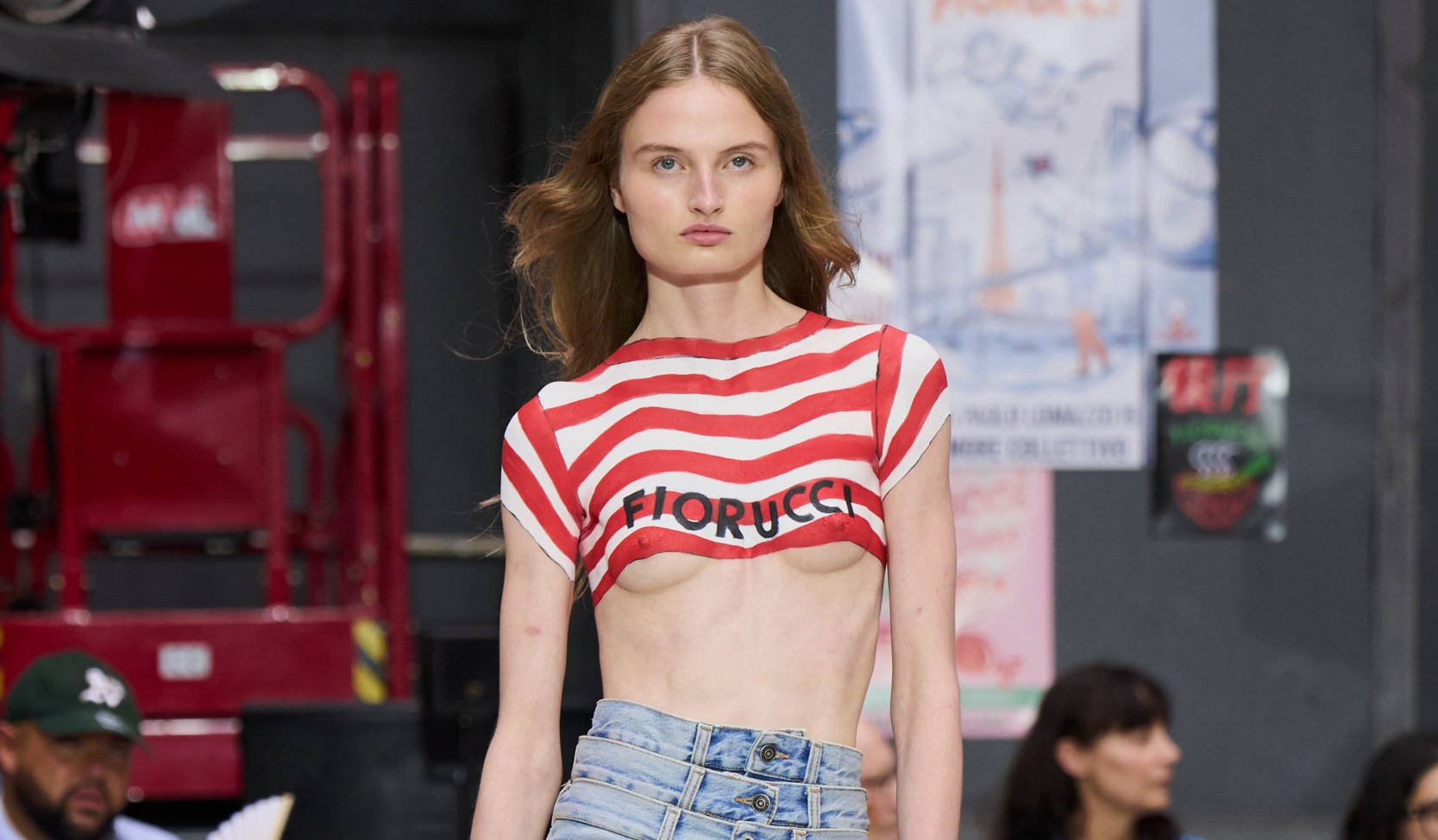“It’s not about doing everything a hundred percent sustainably. It’s about choosing the best alternative possible and doing the best you can.”
We had the pleasure to talk to Maria Pentschev one of the founders of the label von Jungfeld about the brand and sustainable fashion. They started off as a label specifically for organically sourced and fashionable socks. Today they offer a variety of products ranging from t-shirts and underwear to special surprise boxes. Overall, Maria Pentschev gave us insightful information about certificates, standards, and what one can do for making conscious consumer decisions.
FRÄULEIN: The first thing I want to talk about is your career. Can you tell me more about your professional pathway? How did you and Lucas Pulkert end up founding the fashion label von Jungfeld?
MARIA PENTSCHEV: I and my co-founder Lucas Pulkert established the brand together about eight years ago in Mannheim. We originally started off as a sock label, but now we do all sorts of body near wear. Since then, I am the managing director of the brand. Taking a few steps back, Lucas and I met eight years ago in Mannheim, while I was studying music and Lucas studied history and cultural economics. What we had in common, however, was the entrepreneurial spirit. Both of us perceived entrepreneurship as a potential for shaping our society. Basically, we both had a soft spot for products, and we were interested in all the facets of branding. To us, it was interesting how you can convey emotion throughout the market. So, we started looking for a product for getting our foot in the industry. We finally thought that socks are a simple and relevant commodity. Now we know better, this product is not that simple. What also attracted us to socks as an item was the socks are among the most used products while at the same time it is the least emotionally charged done. All in all, we wanted to get the sock out of its shadowy existence and turn it into a stylish accessory.
How did the further course of the process look like regarding the establishment of von Jungfeld?
The next step was to inspect the market and we found out that colorful and joyful socks were already offered by other brands. Overall, we realized that there already is a big variety on the market but that the general image of socks needs some refreshing. Our goal was to ultimately create socks as an accessory that fused three core values: style, quality, and sustainability.
What were some significant measures concerning your journey towards sustainable production?
It was definitely quite a voyage. We started our production in Germany. Along the way, we figured out that incorporating sustainable production is not that easy for such a young company. But we never lost sight of our main goal, which was responsibly implementing our cooperate values. One of the obstacles in our journey was that in 2013 many production facilities did not have certified organic cotton. As soon as it was possible, however, we switched to producing with the certification of the Global Organic Textile Standard, also known as GOTS. For that reason, we had to relocate our production abroad. To this day I have to say that we are not one hundred percent sustainable. But that’s not what it’s about, it’s about choosing the best possible alternatives.
Overall, what is your understanding of sustainability, especially concerning your brand?
Part of our sustainability aspect is that we only produce in Europe, which means that transportation routes are as short as possible. The important thing is that we primarily produce GOTS certified, which is the leading standard for textile production in terms of sustainability, social standards, and animal-friendly aspects. This includes that the synthetic fibers are now usually also recycled. But sometimes we also have to make entrepreneurial compromises. For example, only a part of the synthetic fibers in our socks are recycled due to the fact, that there are no color choices for recycled polyamides. However, we assume that due to the increasing demand, colored recycled polyamide will be widely produced in a few years. We also pay attention to sustainability when it comes to packaging. It is important for us to support sustainable forestry, which can be identified by the label named Forest Stewardship Council, the abbreviation is FSC. A certification that is one level below is called FSC Mix, which we fall back on when FSC is not possible. In the end, it’s about continuously improving ourselves and considering each new product: What is the most sustainable alternative? Can we work with what’s offered? And if not, do we even need the product?
For the upcoming season, everyone is looking for nice, warm wool socks. Can you tell me more about your merino socks?
First of all, I have to say that the production of merino wool regarding low or zero standards is often involved with animal cruelty. So, it is super important to look for high certifications on merino wool products. Of course, we have also researched the whole process extensively and we were able to find a standard that counteracts the whole thing also known as mulesing. Mulesing is a process that leads to cutting off infected parts of the animal’s skin without anesthetization. By now there are plenty of standards, certifications, and monitorings to prevent that. Ultimately, we found the right wool to be able to offer non-mulesed merino socks.
All things considered, the aspect of sustainability is becoming more and more important. Looking back, in the year 2013 you were pioneers in terms of ecological production. How do you think the market has changed since then?
Above all, I think that more and more labels are also resorting to sustainable aspects, which is a good thing. I would also say that it has become much easier to establish a fashion label based on sustainable principles. It is already much easier to get organic cotton in different colors today than it was eight years ago. Because now there is more demand and more supply which leads to sustainable products are also becoming increasingly cheaper.
Finally, I would like to speak about the issue of responsibility. Concerning sustainable consumption, individual decisions by consumers, but also entrepreneurial decisions by companies, play a significant role. What are your thoughts about this matter?
This is a really important issue for us. Of course, I think the consumer cannot be held entirely responsible. The responsibility for production is obviously tied to the entrepreneurs. The consumer nevertheless bears a certain degree of responsibility. First of all, it is important to inform yourself about certifications and about what their standards are. At the same time, however, it is not enough to just rely on the certification. So, what you can do is to research the company and the team behind the product and what their core values are. In sum I would say, examine the certification, explore the websites of the companies, look into the people behind the product and decide on a few companies, trust them and support them. And the last thing of course is to take good care of things.
